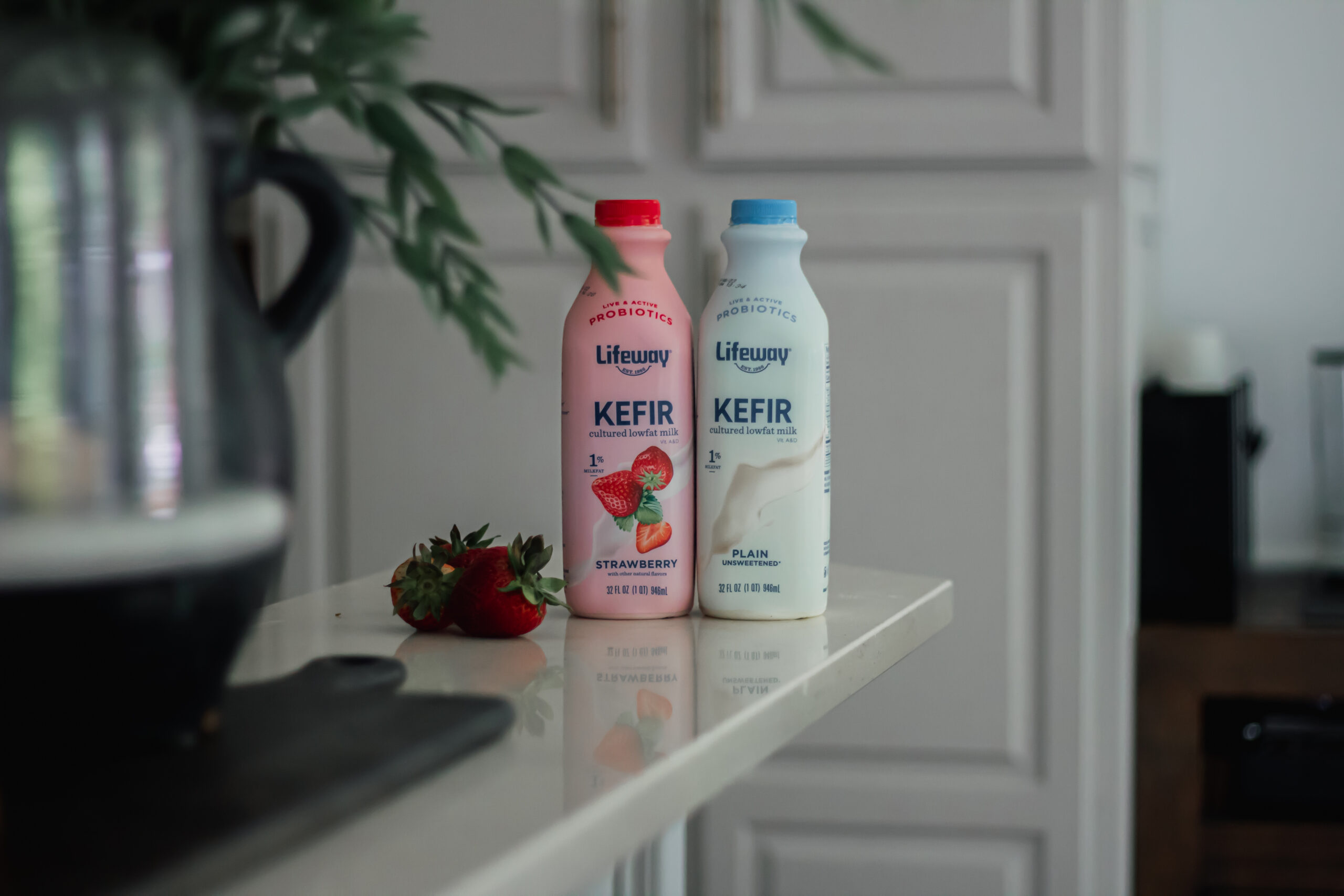As consumers, it’s natural to worry about too much added sugar in the diet. Current consumption of added sugars for most Americans is slightly higher than what is recommended in the Dietary Guidelines for Americans (DGA). Americans’ intake is around 13% of calories per day, while the recommendation is up to 10% (270 calories) out of a 2,000-calorie diet or a Daily Value of 50 grams added sugar per day.
While this might sound like doom and gloom, there are a few important things to remember. First, the top contributors of added sugar (which count for more than half) include sugar sweetened beverages, desserts, and sweetened snacks, all of which provide little nutrients or food group recommendations to the consumer. Dairy-sweetened foods, for example, contribute only 4% of added sugar to the diet. This leads to the second and more important point to remember, which is that added sugar does play a role in a healthy diet by helping to deliver essential nutrients. The DGA states that small amounts of sugars can be added to under-consumed nutrient-dense foods, such as kefir, to help meet food group recommendations. Kefir contains potassium, calcium, and vitamin D, making it the perfect vehicle to consume these 3 out of 4 nutrients of concern that are called out by the DGA. In addition, kefir and other fermented dairy products are a source of probiotics which fuel the gut microbiome, and therefore may play a positive role in our immune, digestive, cardiovascular, and psychological health.

Sugar in Lifeway Kefir
By nature, plain kefir contains 9 grams of natural sugar called lactose. During fermentation of kefir, the live and active probiotic cultures feed off the lactose and break it down into galactose and glucose, ensuring our kefir is up to 99 percent lactose-free and suitable for most people who are lactose intolerant. Once the lactose is broken down, the kefir cultures then react with glucose, and turn it into lactic acid in a process known as homofermentation. This lactic acid is one of the byproducts of fermentation that gives kefir its distinct taste and bite!
Lifeway kefir flavors are lightly sweetened with only 1 gram per ounce (8 grams per cup) of natural cane sugar (sucrose). This is relatively low compared to some commercial yogurts, which may have as much as 4-9 grams per ounce. In addition, this is far ahead of the goal established by USDA to limit sugars in school meals to 10 grams per 8 ounce serving (1 cup) for flavored milk and 12 grams per 6 ounces of yogurt.
While some may be worried about added sugar and the effectiveness of probiotics, there should be no concern. Probiotics need carbohydrates to feed off to grow and thrive, and the probiotics will just begin fermenting the added sugars as well. Sugar is even added to some products that do not contain natural sugar so that the probiotics can ferment the added sugar for fuel. In addition, there is no scientific evidence to show that the sugar in kefir and other fermented dairy products reduces the health benefits associated with probiotics. In fact, most human studies on the health benefits of probiotic foods typically use products with added sugar because of palatability, and health benefits are still observed.
Working Together
The food industry is committed to helping educate consumers, limit added sugars in products and provide healthy options, as outlined in the recent National Strategy on Hunger, Nutrition, and Health. Lifeway’s mission has always been the health of our consumers, and we look forward to continuing to provide and exploring a variety of options that go along with a gut healthy, balanced approach to eating.
- S. Department of Health and Human Services, Dietary Guidelines for Americans 2020 – 2025, 9th edition (Dec. 2020). https://www.dietaryguidelines.gov/sites/default/files/2021-03/Dietary_Guidelines_for_Americans-2020-2025.pdf
- USDA Food and Nutrition Service, Proposed Rule on Added Sugar in School Meals https://www.fns.usda.gov/cn/nutrition-standards-proposed-rule-added-sugars
- International Scientific Association for Probiotics and Prebiotics, ISAAP Science Blog, January 13, 2021 https://isappscience.org/can-fermented-or-probiotic-foods-with-added-sugars-be-part-of-a-healthy-diet/#:~:text=Human%20studies%20assessing%20health%20benefits,overall%20daily%20intake%20of%20sugar
- The White House, Biden- Harris Administration National Strategy on Hunger, Nutrition, and Health (Sept.2022), https://www.whitehouse.gov/wp-content/uploads/2022/09/White-House-National-Strategy-on-Hunger-Nutrition-and-Health-FINAL.pdf